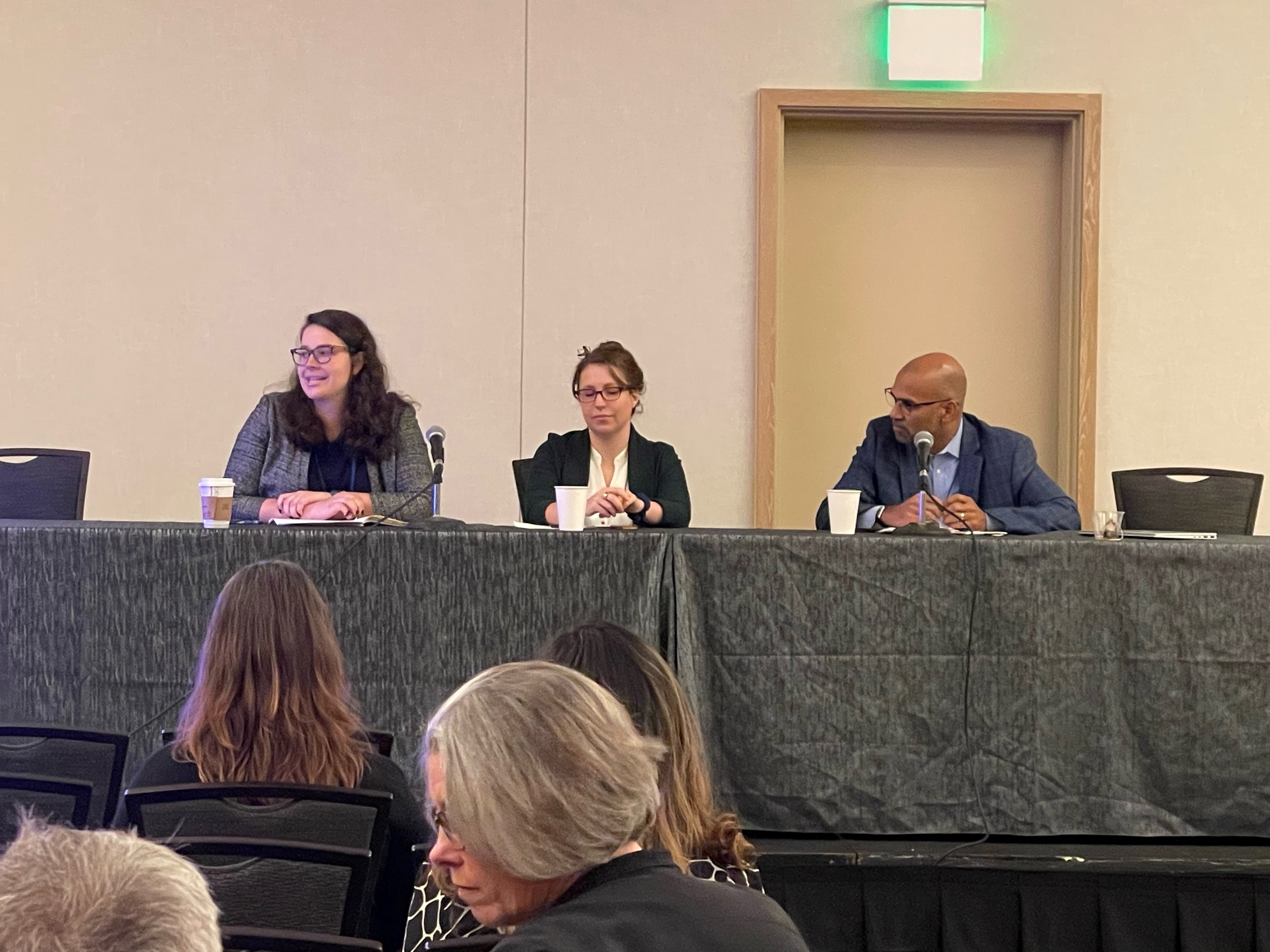College Board Forum 2022
Change Agents: Inspiring a Rising Generation with the Tools of Democracy
Scrolling through Twitter, one can’t help but feel our civil and social discourse is at an all-time low. Polarizing political issues seemingly encourage the most extreme views, leaving those more in the middle frustrated and frightened to engage on platforms designed for conversation. Generation Z is watching the nation’s political divides widen, leaving some to wonder how they can make a real difference in the world, while discouraging others from even weighing in.
At Forum 2022, April Lawson, managing director of Debates and Public Discourse at Braver Angels, Rajiv Vinnakota, president of the Institute for Citizens & Scholars, and Hannah Van Drie, associate director of Special Projects at College Board, explored how civic-minded Generation Z is in comparison to other generations, and how to have tough conversations that bridge partisan divides and foster positive, productive engagement with our democracy.

From left to right: Hannah Van Drie, April Lawson, and Rajiv Vinnakota
College Board is committed to civic education and clearing a path for all students to own their future. How our young people participate and engage in democracy is important to the organization, but what does that mean? Voter registration is an essential first step, but civic engagement is also about challenging conversations and opportunities for students to take charge of their developing views through meaningful interactions in the classroom and beyond. That’s why we encourage and advocate for project-based learning, boost deep conversations about political issues, and foster engagement through tough debates.
In the panel discussion, speakers shared strategies to think about how to break down barriers and engage in meaningful conversations, especially around polarizing issues.
In order to improve the state of democracy, at its core, we need to understand it’s really about citizen development.
Rajiv Vinnakota, President, The Institute for Citizens & Scholars
How do we do this?
- Encourage students to be civically well-informed by understanding the historical underpinnings of how we got here and identifying diverse and varied sources in an exploration of the truth.
- Productively engage for the common good. This type of engagement, Vinnakota finds, starts in your community.
- Engage in thoughtful civil discourse.
- Be hopeful about democracy in America and inspire trust in our institutions and neighbors.
When engaging in debate, Lawson finds running a program that identifies common ground can bridge the political divide. She encourages incorporating a diverse group of contributors so there’s a variety of lived experience people can share. And Lawson employs strategies to downplay personal differences by encouraging participants to address the appointed chair, as in parliamentary procedure, to avoid a perceived attack on a speaker.
As adults, the speakers found that:
- Civic engagement starts at home. Encourage topical conversations about current events around the dinner table to help our young people understand the weight of their voices.
- Offer opportunities for debate to help bridge the political divide. This includes ensuring both red and blue voices and different age groups are present and heard.
- Build a scaffolding to support our young people and their ideas, allowing them to explore and experiment with different ideas.
- Practice being a citizen at every turn.